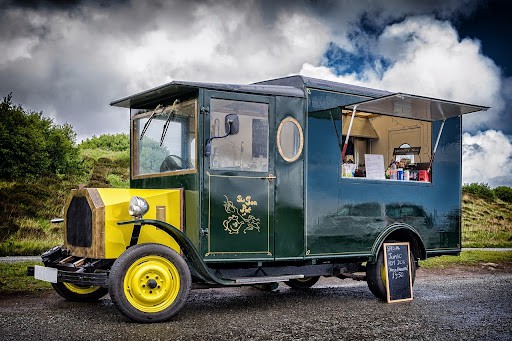Food trucks have really mushroomed in popularity so quickly in recent years that several cities have become known for their food truck culture. What was once considered a culinary risk has become a global gastronomic craze.
These trucks that are lining up the streets and sidewalks offer cheap but tasty meals that people adore. And if you want to go out and start your own food truck business, there are a few things you should keep in mind.
First, plan your costs
First and foremost, how much does it cost to start a food truck business?
It’s hard to give an accurate estimate for startup costs because there are so many options for what you’ll need to get started.
First, you’ll have to find the right truck for your business, which can cost anywhere from $40,000 and $80,000 (for used ones). Keep in mind that the price can exceed the $100,000 mark if you want a new custom-built truck.
You also have to consider the following:
- Food and ingredients,
- Employee salaries,
- Insurance,
- Marketing,
- Technology that will allow you to operate your truck.
The vehicle itself will be the most expensive and time-consuming cost you will have. You’ll want to have a few layout possibilities before deciding on a truck, keeping in mind what you’ll need for your food truck business.
To get a sense of what different layouts look like and which one would work best for you, talk to several food truck vendors or other business owners.
A Good Business Plan is a must
Yes, you need a food truck business plan. It doesn’t matter how much you want to grow, a plan is essential, especially in the starting stages of your business journey.
Writing a food truck business plan is an excellent way to iron out the intricacies of your venture before you begin investing. Since this is the paper you will offer to potential investors, it is critical that you clearly write out your vision and financial plan.
This piece of paper is a guide that will lead you through the first stages and point your business in the right direction.
Your plan needs to include the following:
- Executive summary;
- Products and services;
- Market analysis;
- Marketing strategy;
- Finances;
- Budgeting.
Think about marketing from the very start
To start, you’ll need to design and implement some marketing strategies to let the local community know about your food truck.
You may hold a grand opening or participate in a local event to attract attention and clients, for example. Also, you should think about creating a website and a social media presence, as well as doing some local advertising.
Furthermore, as a mobile company whose location changes on a daily basis, it’s critical to keep your clients informed about your location. You’ll need to keep this in mind whether you’re creating a weekly timetable or simply keeping your clients up to date on your website or social media accounts.
For instance, you could make use of TikTok, which is a platform that is used by younger generations. In fact, there are thousands of them posting and swiping through numerous videos every single day.
If making TikToks and targeting your audience there seems too difficult, you shouldn’t avoid seeking services from a proven TikTok agency. A good agency has social media experts that know the ins and outs of every social platform, which helps them get your business in front of the right eyes.
Find the Right Parking Locations
The ability to be mobile is one of the advantages of launching a food truck business.
While you may be able to go where your customers are, you’ll also need to find out what the greatest spots to draw clients are, as well as where you can and cannot park your truck.
The constraints concerning parking for your food truck, such as licenses, and permits, will be individual to your city. You should also check your local regulations to see what your alternatives are.
Acquire the right permits and food licenses
After you’ve figured out where you’ll get your money and where you can park, you need to figure out what licenses you’ll need to start a food truck.
The permits and licenses required to operate a food truck business vary from state to state and even city to city, so check with your local government, such as the Chamber of Commerce, the Health Department, and the Department of Motor Vehicles (DMV) office, to find out what they require.
Remember, these are some of the licenses that you will most likely have to obtain:
- Business license.
- Foodservice license.
- Employer ID number.
- Health permit.
- Mobile food truck permit.
- Zoning and parking permit.
Ask about parking limitations and permits in your city, as well as where overnight parking is legal, while you work with your DMV to obtain your parking licenses and registration.
Final words
Opening a food truck can be difficult, but if you take what you can out of these tips we listed above, you’ll be well on your way to developing a thriving business.
So, it will be worth it to go over the tips again just to make sure you have got everything right. Good luck!
